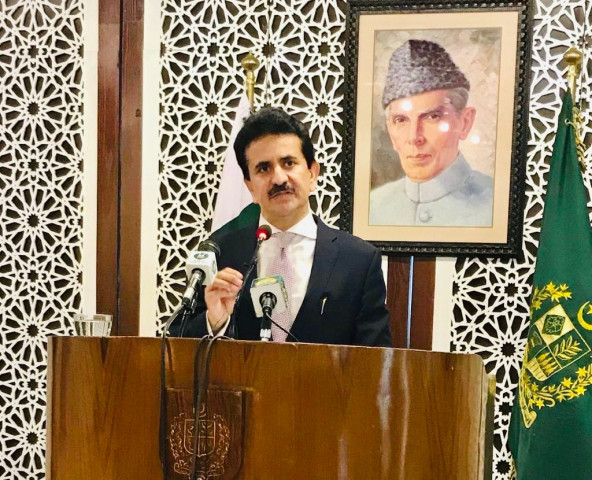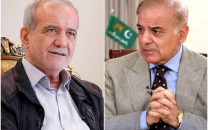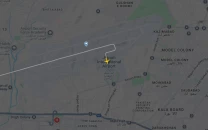UN terror report vindicates Pakistan
MoFA says TTP, JuA, HuA, Afghan affiliates pose threat to entire region

The United Nations in its recent report has vindicated Pakistan’s longstanding position on threats posed to the country and region by terror outfits like Tehreeke-Taliban Pakistan (TTP), Jamaat-ul-Ahrar (JuA), Hizbul-Ahrar (HuA) and their affiliates based in Afghanistan, said the Ministry of Foreign Affairs (MoFA) in a statement on Sunday.
Pakistan, in the past, has drawn attention of the international community to the support provided to TTP and its affiliates by the hostile intelligence agencies, the statement said.
One of the results of that support was the merger of JuA, HuA, and other splinter groups of LeJ (Lashkare-Jhangvi) with TTP in Afghanistan last year, it added.
The 27th Report of the UN Analytical and Monitoring Team, dated February 3, noted that the TTP was reported to have overseen a reunification of splinter groups in Afghanistan It confirmed that Pakistan had made arrests of individuals engaged in terrorism financing and the freezing of the assets of designated individuals and entities.
The statement said that Pakistan had also raised the issue of cross-border attacks carried out by TTP on security forces deployed on its side of the border.
It observed that Pakistan acknowledged UNMT’s efforts in exposing the hostile agencies’ sponsored collusion of anti-Pakistan elements in Afghanistan.
Pakistan expects that a dedicated effort will be launched by ANDSF and RSM to neutralise this threat emanating from Afghanistan, the MoFA said.
The ministry observed that Pakistan stood firm in its resolve to partner with international community against the menace of terrorism. The UN report stated that Afghanistan continued to serve as a sanctuary for terror groups, including the TTP.
According to the document, the reunion of terror groups was moderated by al Qaeda and was expected to increase the threat to Afghanistan, Pakistan and the region.
The report revealed that five entities pledged alliance to TTP in July and August, including the Shehryar Mehsud group, JuA, HuA, the Amjad Farooqi group and the Usman Saifullah group (formerly known as Lashkar-e- Jhangvi).
According to the report, the reunification of these terror groups in Afghanistan had amplified the strength of TTP and resulted in a sharp increase in attacks in the region.
It blamed the TTP for more than 100 cross-border attacks between July and October 2020.
Pakistan has suffered massively in the war against terrorism losing thousands of its civilians and soldiers and an economic and social setback to the tune of $126 billion.
While Pakistan has successfully eliminated terrorists from its soil, over the past few months cross-border terrorist attacks from ungoverned spaces in Afghanistan have escalated.
In November last, Pakistan handed over a dossier to UN Secretary General Antonio Guterres on the Indian sponsorship of TTP and JuA.
Both terrorist groups have been designated by the 1267 Sanctions Committee of the Security Council.
Islamabad presented a trove of evidence, including details of financial transactions worth millions of dollars, documents, and audio clips and information related to contacts between members of India’s intelligence agencies and militants and terrorist groups. India denies the charge sheet.
India had been constantly campaigning to malign Pakistan through different tactics.
Last year, EU DisinfoLab — a Brussels-based independent non-profit organization — focused on tackling sophisticated disinformation exposed the iteration of an Indian influence campaign aimed at defaming Pakistan within the EU institutions.
According to an investigation by the EU DisinfoLab, a coordinated influence operation, to vilify Pakistan’s reputation, was being led by the New-Delhi-based Srivastava Group and amplified by Asia News International (ANI), an Indian news agency.
The operation’s mission was to discredit nations in conflict with India in the region, in particular Pakistan and also China to a certain extent.
In the long run, the campaign was aimed at bolstering India’s global perception, which would ultimately allow New Delhi to bag more support from international institutions such as the EU and the UN.
DisinfoLab researchers believed the operation, which had been running for the past 15 years, employed more than 750 fake media outlets, and more than 550 domain names in 119 countries to reinforce pro-Indian and anti-Pakistan feelings.
Experts say Pakistan is frequently linked to terrorist activities primarily to keep it under pressure through groups like the Financial Action Task Force.
The Paris-based Financial Action Task Force placed Pakistan on the so-called gray list in 2018, at the request of the Trump administration.
To avoid sanctions, Pakistan made significant progress clamping down on terrorism financing and money laundering.
Last year, the country’s progress report showed that it had complied with 21 of the 27-point action plan the watchdog gave. India has been actively lobbying to have the country blacklisted.



















COMMENTS
Comments are moderated and generally will be posted if they are on-topic and not abusive.
For more information, please see our Comments FAQ